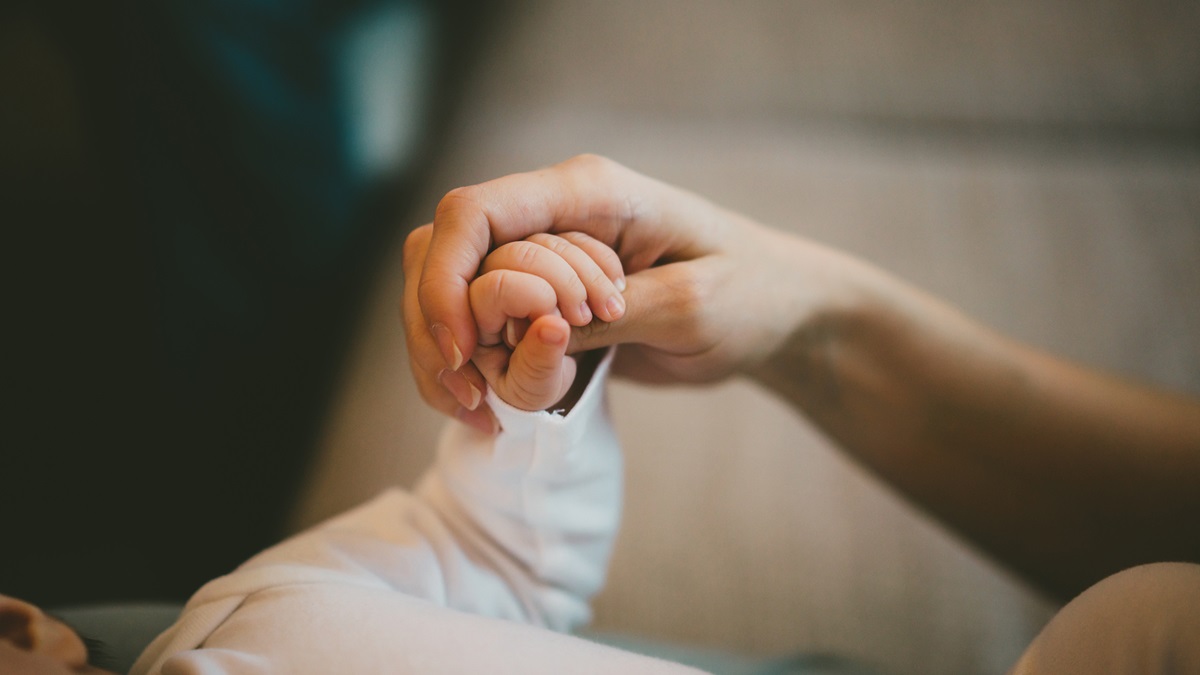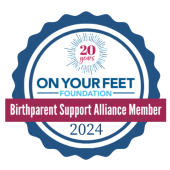Finding Post-Placement Support for Birth Parents Near You

The adoption process doesn’t stop at placement. For many birth parents, that moment is just the start of a new emotional chapter, one filled with complex feelings, grief, and a need for connection. That’s why post placement support for birth parents is more than helpful; it’s essential.
Support doesn’t look the same for everyone. Some birth moms want ongoing contact with their child through open adoption. Others may need time and space to process the experience in private. Many benefit from counseling, group programs, or simply having someone who understands to talk to. Thankfully, support is out there, and often closer than you think.
Why Post Placement Support Is So Important
After placement, emotions may come in waves. Relief, sadness, guilt, peace, and even doubt can come and go unpredictably. It’s common, and it’s okay to feel it all. But no birth parent should feel like they have to handle it alone. Support can come in many forms:
- Individual or group counseling sessions
- Access to practical resources like housing, education, or employment
- Connection with other birth parents
- Continued involvement in open adoption arrangements
- Emotional support tailored to grief and healing
That’s where post placement support for birth parents really makes a difference. It acknowledges that grief doesn’t have a deadline and that healing takes time. It’s not a one-size-fits-all process. With the right tools and the right people, birth parents can move forward with strength and comfort.
Where to Begin? Start with the Placing Agency
One of the first places birth parents can turn to for help is the adoption agency they worked with. Many agencies offer agency support after adoption, which often includes counseling, financial assistance (depending on state laws), and referrals to programs that can help meet emotional and practical needs.
Some agencies continue to check in with birth parents months, or even years, after placement. They understand that post placement care is not optional; it’s part of ethical adoption work. If you’ve placed through an agency, it’s worth reaching out and asking what ongoing services they provide.
Look for programs such as:
- Therapeutic counseling sessions specifically designed for birth parents
- Case managers who can help with housing, employment, or school goals
- Birth mom retreats and healing workshops
- Peer mentors who’ve placed a child and understand the unique experience
Agencies connected with organizations like On Your Feet Foundation may have access to a larger community of birth parents and support opportunities to connect you with.
Open Adoption as a Source of Healing
Open adoption can provide its own form of support. Knowing how your child is doing, getting updates, and even maintaining a relationship can help some birth parents feel connected, comforted, and affirmed in their decision.
That said, open adoption doesn’t erase grief. There still may be times where seeing photos or visiting with your child is emotionally challenging. But this connection can offer peace of mind and a sense of purpose. It’s important for birth parents to know that they can still ask for post placement support, even if they have a good open relationship with the adoptive family.
Support isn’t “getting over it.” It’s learning to live with the emotions in a healthy way. In open, semi-open, or closed adoptions, birth parents deserve care and connection after placement.
Local and National Resources for Support
Finding post placement support for birth parents starts with knowing where to look. While some support is offered locally, many programs provide virtual options, which can be especially helpful for birth parents in rural areas or those without transportation.
1. On Your Feet Foundation
One of the most trusted organizations offering specialized care for birth moms is On Your Feet Foundation. They focus exclusively on supporting birth parents after adoption and offer:
- Case management to help meet life goals
- Therapeutic retreats for connection and healing
- Birth mom mentorship programs
- Resource referrals for housing, therapy, or other needs
- Support groups to bond with others who understand your experience
The Adoption Center for Family Building proudly partners with On Your Feet Foundation to ensure that no birth parent is left without the support they deserve.
2. Counseling Services for Birth Moms
Access to therapy can be a life-changing part of post placement support for birth parents. Mental health professionals trained in adoption-related grief and trauma offer a safe space to express pain, guilt, and even anger without judgment.
If the adoption was handled through an agency, ask if they offer or can refer you to post adoption counseling for birth moms.
Key benefits of counseling include:
- Processing adoption-related grief
- Navigating feelings of loss or shame
- Coping with relationship changes after placement
- Building a stronger sense of self-worth
3. Support Groups
Sometimes the most powerful support comes from someone who’s been there. Support groups, whether local or virtual, offer birth parents a space to talk about their experiences, validate each other’s feelings, and offer compassion in a way only peers can.
Many birth moms say that just hearing “me too” from another person who’s placed a child can ease their sense of isolation. These groups may be organized by:
- Local adoption agencies
- Faith-based outreach organizations
- Birth parent nonprofits
- Online platforms with secure discussion boards or Zoom meetups
Peer support isn’t a replacement for therapy, but it often complements professional care by building community and friendship.
4. If You’re Not Connected to an Agency
Not all placements are handled through agencies. Some birth parents work with private attorneys or family arrangements and may not know where to turn afterward. In these cases, programs like On Your Feet Foundation become even more critical.
If you’re not currently connected to an agency, you can still access:
- Independent post-placement therapists
- Virtual birth mom support networks
- National nonprofit services for adoption-related trauma
These options are typically open to all birth parents, regardless of how or when the adoption took place.
Advocating for Your Needs After Placement
Many birth parents aren’t sure what they’re allowed to ask for after placement. The truth is, they have every right to seek out support, emotionally, mentally, and even financially in some cases. A compassionate adoption plan doesn’t end when the baby is placed. The emotional aftermath can last for years, and support should reflect that.
Birth parents can (and should) advocate for themselves by:
- Asking the agency or attorney involved in the adoption what services are available
- Requesting post adoption counseling for birth moms even months or years later
- Speaking up if open adoption agreements are not being honored
- Seeking resources from nonprofits or community organizations
- Reaching out for help, again and again if needed
Support should never be conditional. It’s not a privilege, it’s part of ethical adoption care. We encourage all agencies and adoptive families to treat post placement support for birth parents as an ongoing responsibility, not a short-term offer.
What Agencies and Families Can Do
Support doesn’t just come from professionals. Adoptive families and agencies also play a role in helping birth parents feel seen, respected, and supported.
- Stay in regular contact with birth parents
- Offer access to post adoption counseling for birth moms at no cost
- Provide educational materials and resources for long-term healing
- Ensure staff are trained in trauma-informed care
- Maintain relationships with organizations like On Your Feet Foundation
Adoptive families can show support by:
- Respecting open adoption agreements
- Being sensitive to milestones like Mother’s Day or birthdays
- Acknowledging the birth parent’s role in the child’s life
- Encouraging continued communication, if the agreement allows
- Sharing photos and updates regularly, with warmth and empathy
When everyone involved treats post-placement care as a priority, the outcome is healthier relationships and stronger emotional well-being for everyone, including the child.
Long-Term Healing Takes Time
Grief after placement doesn’t follow a neat timeline. Some birth moms find peace sooner than others. Some carry the ache with them for years. That’s why post placement support for birth parents must be flexible, ongoing, and easy to access at every stage.
Support might look like:
- A weekly therapy session
- A group Zoom chat with other birth moms
- A quiet afternoon at a birth mother retreat
- A text update from an adoptive family
- Or just a phone call with someone who listens without judgment
None of it erases the pain, but it can lighten the load. With the right kind of care, healing becomes possible.
Post Placement Support for Birth Parents Matters
Support after adoption isn’t just a nice option, it’s a necessity. Birth parents face a unique emotional reality after placement. It’s one that deserves care, compassion, and resources that extend far beyond the hospital room or courtroom.
We see the strength it takes to place a child, and we believe that strength should be met with support, every step of the way.
If you’re a birth parent or someone supporting one, we encourage you to connect with compassionate, experienced professionals who truly care. At the Adoption Center for Family Building, we believe every birth parent deserves continued care after placement.
Visit our website or contact us here to speak with a counselor or support team member who understands what you’re going through.



